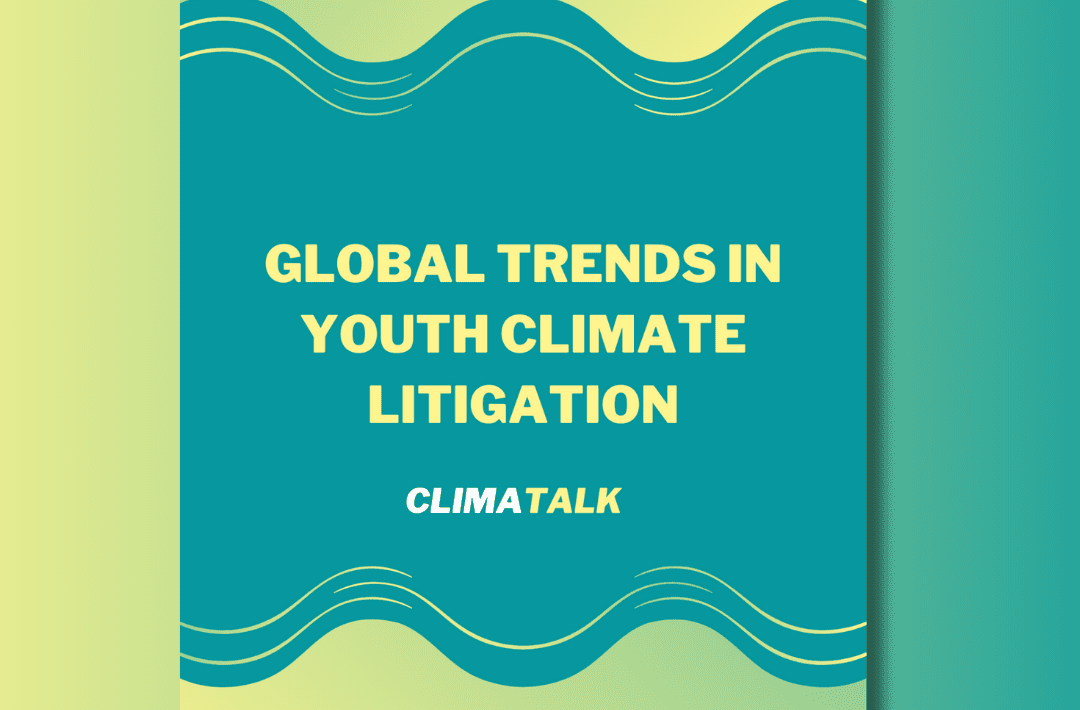
Reynolds v. State of Florida
by Leon Qiu
Eight young people brought a complaint against the State of Florida claiming violations to their human rights of life, liberty, and property. They alleged that in creating and operating a fossil fuel-based energy system their right to pursue happiness was adversely affected. The complaint was dismissed on the grounds that it raised non-justiciable political questions on which courts had no authority to adjudicate.
| Country: | United States |
| Defendants: | State of Florida |
| Law Applied: | Constitutional Law |
| Key words: | Human Rights Energy Climate Justice Adaptation |
Case Information:
Court(s): Circuit Court for the Second Judicial Circuit, in and for Leon County, State of Florida
First District Court of Appeal, State of Florida
Dissenting Judgment: No
Filing Date: 2018
Last Update: 2021
Status: Complaint dismissed, on appeal dismissal upheld.
BACKGROUND
The Plaintiffs, eight young people, brought a complaint in the Circuit Court for the Second Judicial Circuit (‘the Circuit Court’) seeking declaratory and injunctive relief compelling the State of Florida and its agencies and officials (‘the Defendants’) to develop and implement a comprehensive plan to bring their energy system into constitutional compliance.[1] The Defendants filed motions to dismiss the complaint on the grounds that it involves non-justiciable political questions.[2] The Court granted the motions to dismiss. The Plaintiffs appealed before Florida’s First District Court of Appeal (‘the Court of Appeal’).
ISSUES
The Court of Appeal was asked to decide whether to uphold the Circuit Court’s dismissal particularly, whether the issues were non-justiciable because they addressed inherently political questions.[3]
THE ARGUMENTS OF THE PARTIES
- Plaintiffs’ Arguments
The Plaintiffs brought a complaint seeking declaratory and injunctive relief, asserting injury caused by the ‘Defendants’ deliberate indifference to their fundamental rights of life, liberty and property, and the pursuit of happiness, which includes a stable climate system, in violation of Florida common-law and the Florida Constitution.’[4]
The Plaintiffs alleged that the ‘Fossil Fuel Energy System’ created and operated by the Defendants fails to ensure that the Plaintiffs (as youths) will grow to adulthood safely. They argued that the atmospheric carbon dioxide (‘CO2‘) concentrations have been ‘human caused’ and ‘excessive’, and such dangerous levels of greenhouse gas pollution would impair ‘the vital natural resources’ on which the Defendants depend.[5] Moreover, while previous generations were not impaired, the energy system discriminately harms current and future generations.[6] The Defendants thus have a constitutional duty to ensure that the energy system complies with the Florida common law and Constitution.[7]
- Defendants’ Arguments
The motions to dismiss filed by the Defendants are based on ‘numerous grounds…including separation of powers doctrine and political question doctrine.'[8] They argued that political issues ought to be considered and decided by the executive branch of government, not the judiciary.
THE JUDGEMENTS
The Circuit Court
The Circuit Court granted the Defendants’ motions to dismiss.
The Court considered itself to have no ‘authority to grant the relief requested due to the Separation of Powers Clause of the Florida Constitution.'[9] It stated that the claims are ‘inherently political questions’ which have to be ‘resolved by the political branches of government’, meaning that the judiciary cannot decide on this matter.[10]
The Court of Appeal
The dismissal was upheld on the grounds that lawsuits which ‘rais[e] non-justiciable political questions’ are to be rejected. Please note that the Court of Appeal handed down a short judgment, which only repeated the authority of the Citizens for Strong Sch, Inc v Fla State Bd of Educ.[11] The Court explained that this is an ‘affirming judgment rejecting the lawsuit as raising non-justiciable political questions.'[12]
Please find the initial Complaint Seeking Declaratory and Injunctive Relief here.
Please find the Circuit Court judgment here.
Please find the Court of Appeal judgment here.
Last edited on 26 June 2023; with thanks to the case editor, Loeva Georges.
REFERENCES:
[1] Reynolds v State of Florida [2020] Circuit Court of the Second Judicial Circuit in and for Leon County, Florida, No. 2018-CA-819 (hereafter ‘Reynolds Circuit Court Judgment’) available here [accessed 25 June 2023], para 1.[2] Ibid, para 2.
[3] Reynolds v State [2021] First District Court of Appeal, Florida, 316 So. 3d 813 (hereafter ‘Reynolds Appeal Judgment’), available here [accessed June 25 2023], p. 2.
[4] Reynolds Circuit Court Judgment, para.1.
[5] Ibid; Complaint Seeking Declaratory and Injunctive Relief [2018] Circuit Court of the Second Judicial Circuit in and for Leon County, Florida (hereafter ‘Complaint Seeking Declaratory and Injunctive Relief’) available here; paras. 125-148.
[6] Ibid.
[7] Reynolds Circuit Court Judgment, para 1; Ibid.., p. 1.Complaint Seeking Declaratory and Injunctive Relief, para. 6.
[8] Reynolds Circuit Court Judgment, para 2.
[9] Ibid, para 3; The Constitution of the State of Florida, Art. II, 3; Citizens for Strong Sch, Inc v Fla State Bd of Educ [2019] Supreme Court of Florida 262 So. 3d 127 (hereafter ‘Citizens for Strong Sch’) available at https://cases.justia.com/florida/supreme-court/2019-sc18-67.pdf?ts=1548869465 [accessed 25 June 2023]
[10] Reynolds Circuit Court Judgment, para 3.
[11] Reynolds Appeal Judgment, p. 2; Citizens for Strong Sch.
[12] Reynolds Appeal Judgment, p. 2.



